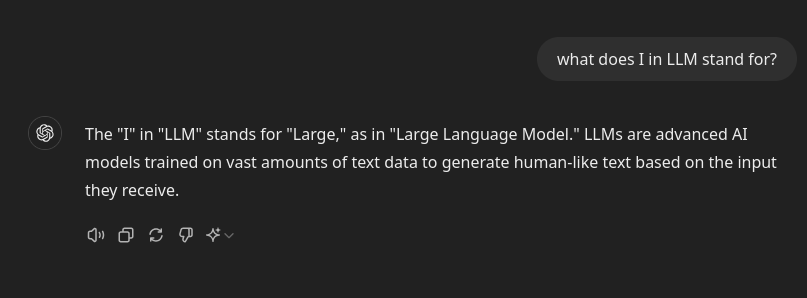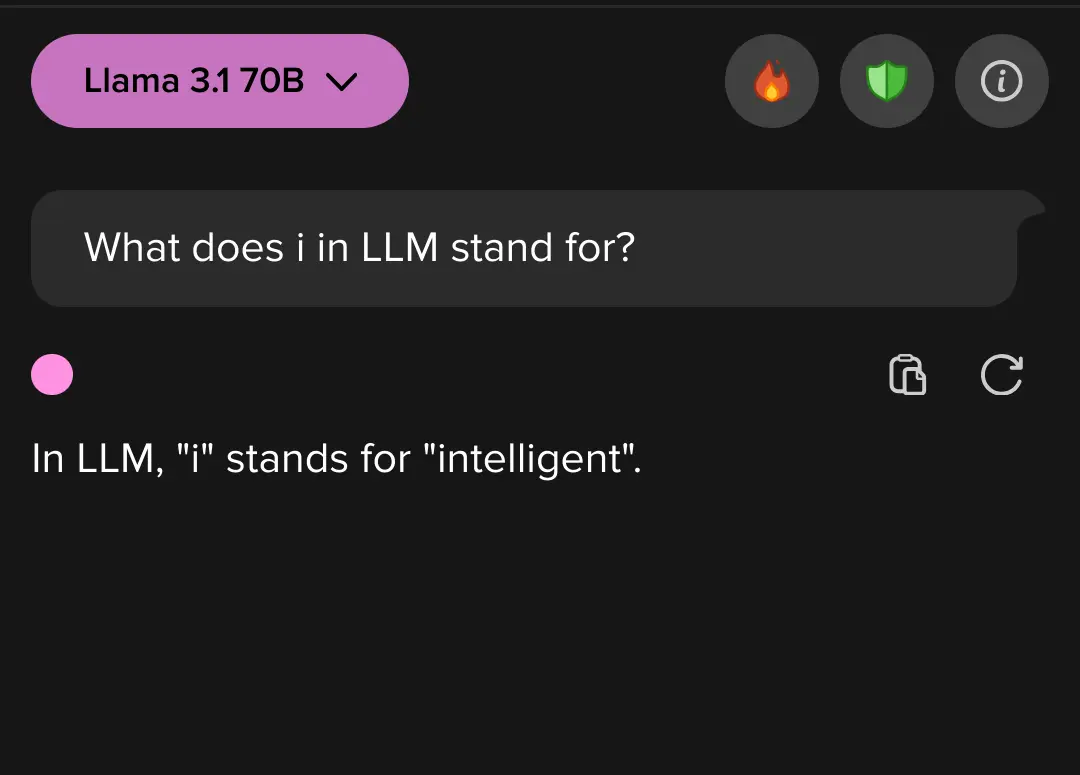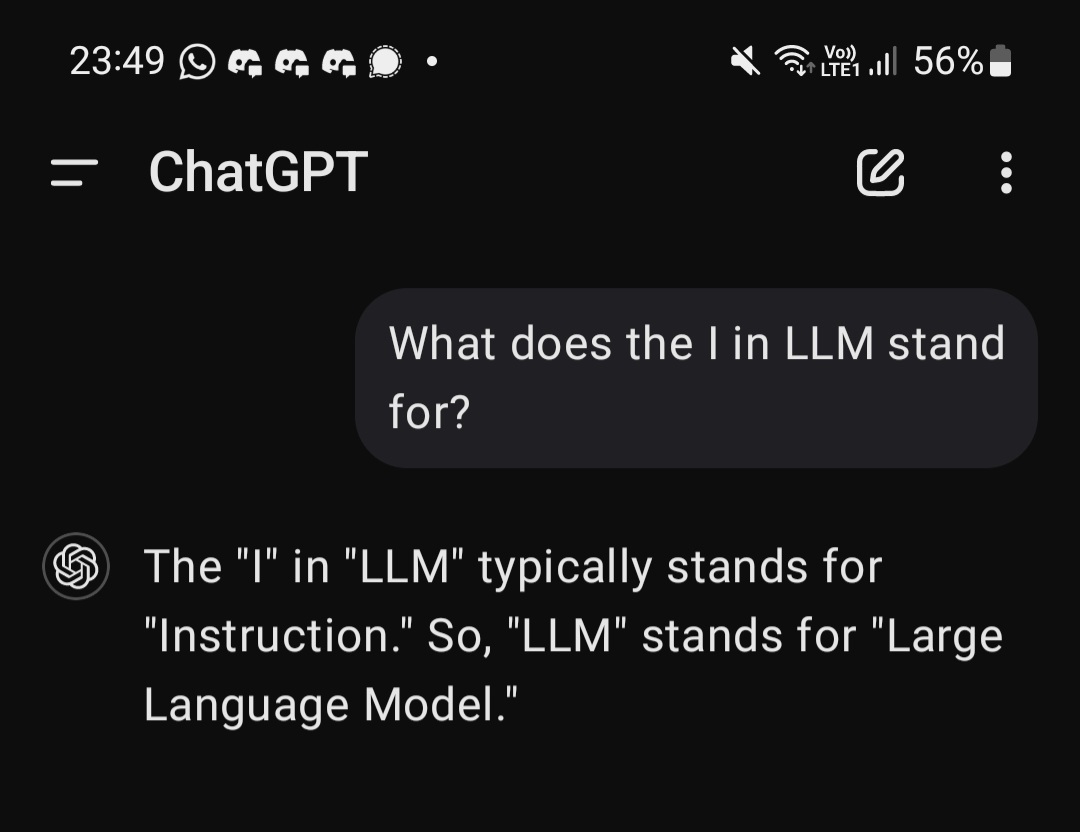Searched up “the I in LLM” using Brave Search to find the link to this article and got given this very helpful AI summary!
Alt:
The i in llm
According to various sources, including experts and researchers, the “I” in LLM (Large Language Model) indeed represents Intelligence. LLMs are designed to mimic human-like intelligence by processing and generating vast amounts of natural language data. They utilize complex algorithms and neural networks to learn patterns, relationships, and context, enabling them to understand, summarize, generate, and predict new content.
In essence, the “I” in LLM signifies the model’s ability to:
- Reason and infer meaning from text
- Recognize patterns and relationships
- Generate coherent and contextually relevant text
- Adapt to new information and refine its understanding
This intelligence is achieved through massive training datasets, advanced algorithms, and computational power. As a result, LLMs have become increasingly sophisticated, enabling applications such as language translation, text summarization, and even creative writing.
In summary, the “I” in LLM represents the model’s core capability: Intelligence, which enables it to process and generate human-like language with remarkable accuracy and flexibility.
it actually makes sense.
- the i in LLM stands for intelligence
- there’s no i in LLM
therefore there’s no intelligence in LLM. which, i agree.

what joke
THIS GUY’S USING INFERENCES! BREAK HIS LEGS!
Be careful, the LLM evangelists will downvote you, smear you for not using “human-like” names like Lora or Alex to describe AI models and/or terminologies, call you a Luddite, etc.
like the S in IoT which stands for security.
Similarly, the “S” in LLM stands for “Secure”
The “P” stands for “Private”
The “J” stands for “Job Security”
I checked for myself in ChatGPT.

iarge.

Meta makes (a little) more sense
In the context of artificial intelligence, LLM typically stands for “Large Language Model.” The “I” in LLM specifically refers to “Intelligence,” but it’s often implied or omitted, and the term is commonly abbreviated as LLM.
However, if you’re referring to a different context or field, please provide more information or clarify what LLM stands for in that specific case, and I’ll do my best to help!
Seems like meta refers to LLaMA when responding the question

deleted by creator
Oh so managers are biological LLMs! It explains everything!
LLMs are like improv machines. You give them a prompt, and they steamroll through it, no matter what.
There is literally no going back and changing it. It improvs as it goes
It’s like how the S in IoT stands for “secure”.
Yes, asking an LLM a nonsense question can result in a nonsense answer.
I see it as a feature. Asking an LLM a stupid question can be fun.
My favorite is “Can I take a duck home from the park?” or “How do I teach a crab math?”.
I agree but it’s also an important thing to remember when asking sensical questions. Something that responds nonsense to nonsense means it’s prioritizing an answer that sounds right over an answer that is right.
Hey that’s not new, people have been doing this since language was invented. Today they’re most successful in areas such as country presidents and company CEOs.






